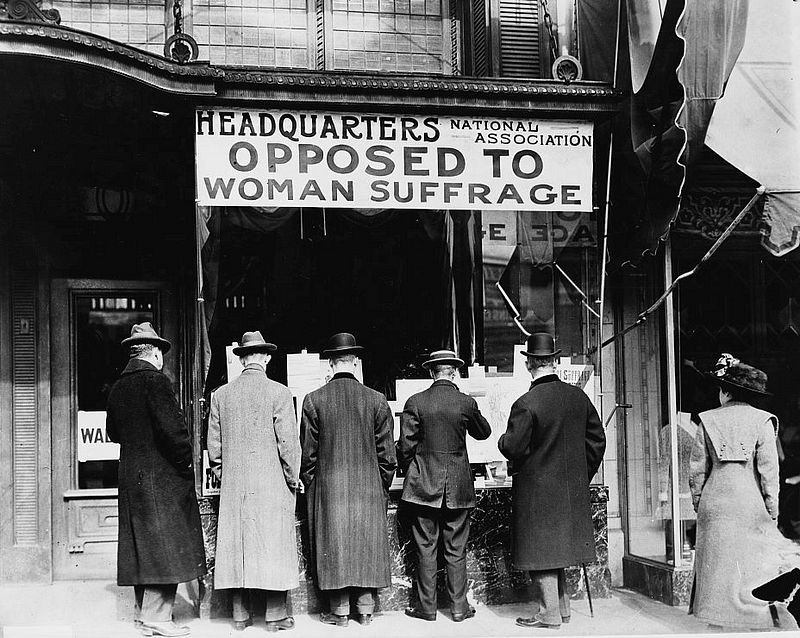
In the interest of fostering a sense of pride for Hamilton College’s past, and to connect this past with Hamilton’s present and future,
The Spectator
has decided to re-publish a collection of archived articles.
This article was published in 1867 on the front page of Hamilton Life, a predecessor to
The Spectator
. To today’s reader, it reads as satire, as a laughable interpretation of gender roles and as a poorly argued reasoning for denying women the right to vote. The author, who remained anonymous, clearly holds Elizabeth Cady Stanton in great disdain and justifies what was a very popular opinion at the time. He argues his viewpoint with a “complimentary” evaluation of the virtues of women, and how “degrading” them to be equal to men would be insulting to both genders. However entertaining this may seem, echoes of these same arguments still exist, 150 years later (nearly to the day) and it is important to acknowledge that the fight that Stanton began in post-Civil War America persists today. Gender-based violence, discrimination (wage or otherwise), and structural sexism are still pervasive issues in our society, and viewpoints such as the one featured here are still modern impediments to much of women’s social progress.
Henry Ward Beecher once advised his congregation to hear Wendell Phillips lecture on abolitionism, saying that if he did not convert them, they would have heard the very best arguments in its favor. Probably the larger portion of the audience that greeted Theodore Tilton the other evening attended the lecture for the same purpose; and it is just to say that they heard the very best arguments “extant” for female suffrage. We were, however, never converted to abolitionism, nor do we yet believe woman suffrage would be a reform.
The lecturer asks if we would deny woman her rights because all do not wish to vote. Without quibbling on the word “rights,” the propriety of which in this connection we deny, we answered unqualifiedly, “yes.” So long as the almost unanimous opinion of woman is that suffrage would degrade her condition, we would not yield to a few visionary fanatics. There are probably not ten women in this county who are not absolutely opposed to voting; yet Mrs. (?) Elizabeth Cady Stanton and her lesser lights would force the franchise and its inevitable condition upon the other thousands. Talk about giving the ballot to women! We had better first ask women to descend and accept it.
The argument that woman is the slave of man is simply specious. Man is the slave of woman. There is more power in the gentle request of a woman, than in all the tomes of law, from Justinian to the Constitutional Convention of ’67. Woman’s power is intangible to legal codes, but as well oppose the growing dawn as her irresistible entreaty. Mr. Tilton recognized this power when he showed how women had been the safeguards of abolition meetings, had quelled riots, etc. A feeling of respect, of true chivalry, comes over even angry mobs at the simple appearance of woman. This chivalric feeling extends to all classes; and we believe it is destroyed only when woman degrades herself to an equality with man. Give woman the ballot, and you destroy this chivalric sentiment by placing both sexes on an equality. Man’s nature is worldly and contentious; woman’s more divine and tranquil. Together they form what God ordained as the first perfect unit. Give woman the ballot, and you destroy this unity by making two halves.
Napoleon’s ideal “good mothers” assuredly never voted, and what is more, never clamored for the franchise. Elizabeth Cady Stanton would have our American women spurn the “pernicious twaddle” of men, and strive to emulate the rude Amazons. For ourselves we much prefer Shakespeare’s Portia, extorting the exclamation even from stoical Brutus:
“O, ye gods. Render me worthy.”

















